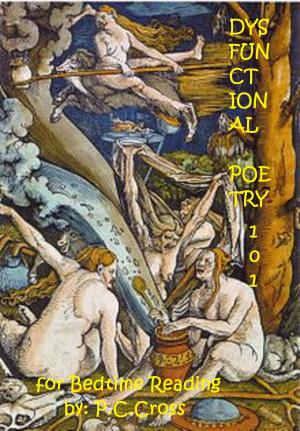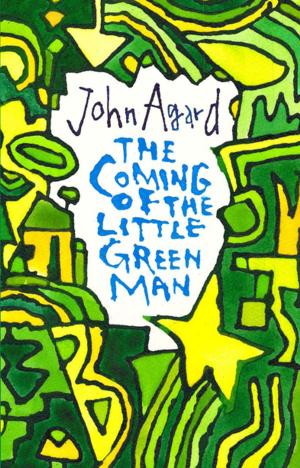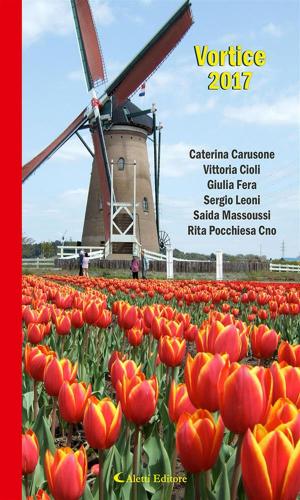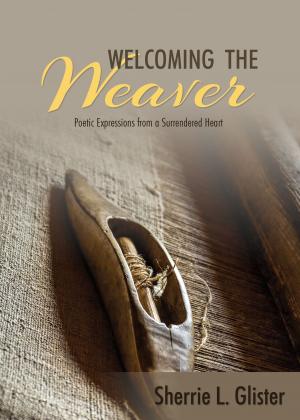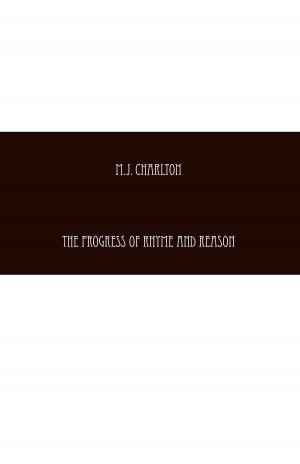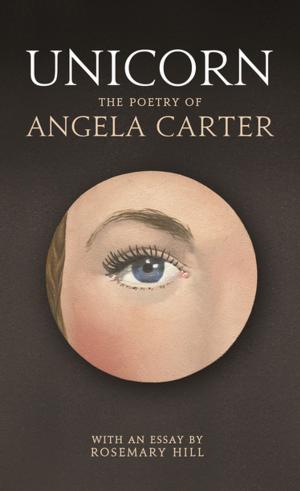| Author: | Professor Lord Asa Briggs | ISBN: | 9780954207564 |
| Publisher: | Edward Everett Root | Publication: | April 28, 2016 |
| Imprint: | Edward Everett Root | Language: | English |
| Author: | Professor Lord Asa Briggs |
| ISBN: | 9780954207564 |
| Publisher: | Edward Everett Root |
| Publication: | April 28, 2016 |
| Imprint: | Edward Everett Root |
| Language: | English |
This is a book of 100 poems of great richness and variety. Indeed, it is genuinely a landmark book. It is an important literary and academic event in itself. Professor Lord Asa Briggs is one of the most important historians of Britain. He is world-renowned for his work in social history, culture, and communications. He has also been a national and international leader in education, and in life-long learning. Now in his nineties, he has been writing poetry since he was 13. But this is the first publication of this body of his literary work. The book is an important cultural event. It will take its place amongst Lord Briggs’ other classic works, his five-volume history of the BBC, his trail-blazing The Age of Improvement 1783-1867, and his famous historical trilogy Victorian People, Victorian Cities, and Victorian Things. The author, a vivid writer, also provides a “strictly necessary Introduction” in which he discusses his ideas about poetry and how and why he has written poetry over the years. Asa Briggs has a very strong visual sense and an intuitive sense of place. In his work, too, he has always related literature to history. He is widely known as an effective and entertaining serious broadcaster, and his feeling for language is special. The volume demonstrates Asa Briggs’ taste, intellectual discipline, technique and literary responses to the events and people he has known during his long life, and the challenges in his life. His style is his own, although he acknowledges his interest in the works of other poets including Matthew Arnold, John Betjeman, Robert Frost, Seamus Heaney, and Dylan Thomas. He grew up, in a working-class family, in the West Riding town of Keighley, and at age 16 he won a scholarship to Sidney Sussex College, Cambridge. In his long career the author was a major influence on the development of new universities in Britain, and of education abroad too. He has been Vice-Chancellor of the University of Sussex, Master of Worcester College Oxford, and Chancellor of The Open University, of which he was one of the originators. He served as an intelligence officer at Bletchley Park during World War Two. The poems particularly illustrate the significance of locality, of boundaries, of oral history, of the world of labour, and of the importance of language and of class. They also contemplate the particular in terms of the general. And the relationships between public and private events. All of these elements have been an important focus for Asa Briggs and for his democratic approaches. His works, indeed, have implied the case for optimism in social progress. His life and works have greatly delineated and enriched democratic culture, together with his studies of the dynamics of economic and social change. This is a book of 100 poems of great richness and variety. Indeed, it is genuinely a landmark book. It is an important literary and academic event in itself. Professor Lord Asa Briggs is one of the most important historians of Britain. He is world-renowned for his work in social history, culture, and communications. He has also been a national and international leader in education, and in life-long learning. Now in his nineties, he has been writing poetry since he was 13. But this is the first publication of this body of his literary work. The book is an important cultural event. It will take its place amongst Lord Briggs’ other classic works, his five-volume history of the BBC, his trail-blazing The Age of Improvement 1783-1867, and his famous historical trilogy Victorian People, Victorian Cities, and Victorian Things. The author, a vivid writer, also provides a “strictly necessary Introduction” in which he discusses his ideas about poetry and how and why he has written poetry over the years. Asa Briggs has a very strong visual sense and an intuitive sense of place. In his work, too, he has always related literature to history. He is widely known as an effective and entertaining serious broadcaster, and his feeling for language is special. The volume demonstrates Asa Briggs’ taste, intellectual discipline, technique and literary responses to the events and people he has known during his long life, and the challenges in his life. His style is his own, although he acknowledges his interest in the works of other poets including Matthew Arnold, John Betjeman, Robert Frost, Seamus Heaney, and Dylan Thomas. He grew up, in a working-class family, in the West Riding town of Keighley, and at age 16 he won a scholarship to Sidney Sussex College, Cambridge. In his long career the author was a major influence on the development of new universities in Britain, and of education abroad too. He has been Vice-Chancellor of the University of Sussex, Master of Worcester College Oxford, and Chancellor of The Open University, of which he was one of the originators. He served as an intelligence officer at Bletchley Park during World War Two. The poems particularly illustrate the significance of locality, of boundaries, of oral history, of the world of labour, and of the importance of language and of class. They also contemplate the particular in terms of the general. And the relationships between public and private events. All of these elements have been an important focus for Asa Briggs and for his democratic approaches. His works, indeed, have implied the case for optimism in social progress. His life and works have greatly delineated and enriched democratic culture, together with his studies of the dynamics of economic and social change.
This is a book of 100 poems of great richness and variety. Indeed, it is genuinely a landmark book. It is an important literary and academic event in itself. Professor Lord Asa Briggs is one of the most important historians of Britain. He is world-renowned for his work in social history, culture, and communications. He has also been a national and international leader in education, and in life-long learning. Now in his nineties, he has been writing poetry since he was 13. But this is the first publication of this body of his literary work. The book is an important cultural event. It will take its place amongst Lord Briggs’ other classic works, his five-volume history of the BBC, his trail-blazing The Age of Improvement 1783-1867, and his famous historical trilogy Victorian People, Victorian Cities, and Victorian Things. The author, a vivid writer, also provides a “strictly necessary Introduction” in which he discusses his ideas about poetry and how and why he has written poetry over the years. Asa Briggs has a very strong visual sense and an intuitive sense of place. In his work, too, he has always related literature to history. He is widely known as an effective and entertaining serious broadcaster, and his feeling for language is special. The volume demonstrates Asa Briggs’ taste, intellectual discipline, technique and literary responses to the events and people he has known during his long life, and the challenges in his life. His style is his own, although he acknowledges his interest in the works of other poets including Matthew Arnold, John Betjeman, Robert Frost, Seamus Heaney, and Dylan Thomas. He grew up, in a working-class family, in the West Riding town of Keighley, and at age 16 he won a scholarship to Sidney Sussex College, Cambridge. In his long career the author was a major influence on the development of new universities in Britain, and of education abroad too. He has been Vice-Chancellor of the University of Sussex, Master of Worcester College Oxford, and Chancellor of The Open University, of which he was one of the originators. He served as an intelligence officer at Bletchley Park during World War Two. The poems particularly illustrate the significance of locality, of boundaries, of oral history, of the world of labour, and of the importance of language and of class. They also contemplate the particular in terms of the general. And the relationships between public and private events. All of these elements have been an important focus for Asa Briggs and for his democratic approaches. His works, indeed, have implied the case for optimism in social progress. His life and works have greatly delineated and enriched democratic culture, together with his studies of the dynamics of economic and social change. This is a book of 100 poems of great richness and variety. Indeed, it is genuinely a landmark book. It is an important literary and academic event in itself. Professor Lord Asa Briggs is one of the most important historians of Britain. He is world-renowned for his work in social history, culture, and communications. He has also been a national and international leader in education, and in life-long learning. Now in his nineties, he has been writing poetry since he was 13. But this is the first publication of this body of his literary work. The book is an important cultural event. It will take its place amongst Lord Briggs’ other classic works, his five-volume history of the BBC, his trail-blazing The Age of Improvement 1783-1867, and his famous historical trilogy Victorian People, Victorian Cities, and Victorian Things. The author, a vivid writer, also provides a “strictly necessary Introduction” in which he discusses his ideas about poetry and how and why he has written poetry over the years. Asa Briggs has a very strong visual sense and an intuitive sense of place. In his work, too, he has always related literature to history. He is widely known as an effective and entertaining serious broadcaster, and his feeling for language is special. The volume demonstrates Asa Briggs’ taste, intellectual discipline, technique and literary responses to the events and people he has known during his long life, and the challenges in his life. His style is his own, although he acknowledges his interest in the works of other poets including Matthew Arnold, John Betjeman, Robert Frost, Seamus Heaney, and Dylan Thomas. He grew up, in a working-class family, in the West Riding town of Keighley, and at age 16 he won a scholarship to Sidney Sussex College, Cambridge. In his long career the author was a major influence on the development of new universities in Britain, and of education abroad too. He has been Vice-Chancellor of the University of Sussex, Master of Worcester College Oxford, and Chancellor of The Open University, of which he was one of the originators. He served as an intelligence officer at Bletchley Park during World War Two. The poems particularly illustrate the significance of locality, of boundaries, of oral history, of the world of labour, and of the importance of language and of class. They also contemplate the particular in terms of the general. And the relationships between public and private events. All of these elements have been an important focus for Asa Briggs and for his democratic approaches. His works, indeed, have implied the case for optimism in social progress. His life and works have greatly delineated and enriched democratic culture, together with his studies of the dynamics of economic and social change.






